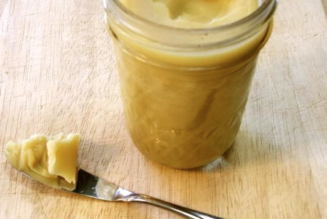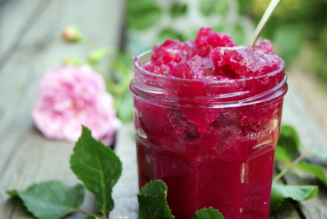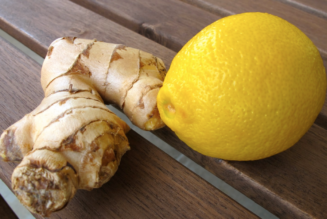Coffee – An Ayurvedic Perspective
For many of us, our mornings are just not complete without a cup of freshly brewed coffee. Whether you’re a local at Starbucks or scoff at Starbucks Venti Caramel Macchiato as not being a real macchiato – the fact remains, we love coffee. According to some research, 54% of Americans over the age of 18 years drink coffee everyday. Let us therefore, explore some of the health concerns centered around American’s favorite drink – coffee!
The Ayurvedic Perspective:
According to Ayurveda, “every type of food can be a poison or a medicine” – depending on what your individual constitution is and how and when you consume it. Ayurveda, is a comprehensive science which takes into consideration one’s unique dosha type – vata, pitta, and kapha.
VATA DOSHA:
Vata types are generally individuals who are easily over-stimulated. Vata individuals are mostly governed by the air element which reflects the increased baseline metabolic rate.
PITTA DOSHA:
Pitta types are typically your “Type-A Personalities’ who tend to be ambitious and competitive. Pitta individuals are more prone to acidic and inflammatory conditions being mostly governed by the fire element.
KAPHA DOSHA:
Kapha types are often the “easy-going” kind and generally have a slower metabolic rate. These individuals are mostly governed by the water and earth elements and therefore are more vulnerable to weight gain due to a slower metabolism.
The Vitality Of Life – “Ojas”
We live in a modern world of over-stimulation. Yet the ancient wisdom of Ayurveda speaks volumes about the quality of stillness. It’s through these various practices of stillness [i.e. yoga & meditation] that one promotes a sense of vitality represented by the production and preservation of “ojas”. Ojas is also referred to as the source of vitality, immunity and vigor in the body and the quality of ojas is dependent on diet, lifestyle and stress.
Stress Response Diminishes Ojas
Some of the more concerning aspects of coffee is our dependence on it for boosting energy, mental clarity and/or keeping the bowels regular. As we know, all of these benefits are very short-lived. Likewise, coffee is a stimulant and increases the release of stress-fighting hormones, which are usually reserved for ‘fight-or-flight’ situations and therefore oppose the concept of “ojas” as explained above. More importantly, DHEA [dehydroepiandrosterone] is a steroid hormone which is responsible for cellular and tissue repair. Unfortunately, for us coffee lovers – DHEA decreases with stress and coffee consumption.
Grass-Fed Butter – DHEA
DHEA, or dehydroepiandrosterone, has become known as the ‘fountain of youth’ and is made from cholesterol by the adrenal glands. Ayurveda has traditionally considered ghee [clarified butter] to be the healthiest source of edible fat, with many beneficial properties – being an excellent source of cholesterol to form DHEA. According to Ayurveda, not only does ghee improve memory and strengthen the brain and nervous system but it’s thought to improve digestion, promote longevity, and even help to protect the body from various diseases. Finally. Grass-fed butter is high in butyrate, a short-chain fatty acid and studies show that butyrate can both prevent and decrease inflammation.
CLICK HERE – Improving Brain Function With Ayurveda
Craze: Coffee + Grass-Fed Butter = “Bulletproof Coffee”
Directions:
Brew 1 cup (8-12 oz.) of coffee using filtered water, just off the boil, with 2 1/2 heaping tablespoons freshly ground Bulletproof® Coffee Beans. (French Press is easiest.)
- Add in 1-2 tablespoons of Brain Octane™ to the hot coffee (It’s STRONG – start with 1 tsp. and work up over several days).
- Add 1-2 tablespoons grass-fed, unsalted butter or ghee
- Mix it all in a blender for 20-30 seconds until it is frothy like a foamy latte
Click Here – More Info On Bulletproof Coffee
Ayurvedic Considerations
Vata Types:
Remembering that vata types are individuals who are easily over-stimulated and also vulnerable to dehydration, constipation, and insomnia [due to the air element]. Therefore, vata types may want to limit their intake of coffee. Likewise, because the sweet taste balances vata types, these individuals would benefit most by having coffee which is both creamy and sweet – as these are grounding and balancing for vata types.
Pitta Types:
Pitta individuals are more prone to acidic and inflammatory conditions which can become exacerbated by the acidic nature of coffee. Therefore, pitta types will benefit most by adding the grass-fed butter [ghee] and/or coconut oil to their coffee. Similarly, pitta types also become more balanced with the taste of sweetness. Therefore, pitta individuals may want to consider adding high-quality maple syrup or organic cane sugar to their coffee – while skipping the cream.
Kapha Types:
Because kapha individuals are mostly governed by the water and earth elements and are more vulnerable to weight gain due to a slower metabolism, these individuals should consider taking their coffee black – no cream, no sugar. Both milk and cream often increase congestion which is already common to kapha types.
The Secret Ingredient?
“If you take the caffeine out of coffee, the benefits cited [below] remain relatively the same. So, if it isn’t the caffeine that is responsible for these benefits, then what is it? There are about 1000 active constituents in the coffee bean and only a few of them are understood. We do know that the coffee bean, the seed of the fruit, is loaded with antioxidants.”
Source – Dr. John Douillard
Want More?
Some Health Benefits Of Coffee:
1. Men who consumed 6 or more cups of coffee a day had an 18% reduction in prostate cancer risk, and a 40% reduction of aggressive lethal prostate cancer. (1)
2. Four cups of coffee a day could reduce your risk of liver cirrhosis by 84% (2)
3. The equivalent of five cups a day for five weeks began to reverse Alzheimer’s damage in the brains of mice by reducing levels of the abnormal protein amyloid-beta, both in the blood and the brain. (3)
4. One to four cups reduced the risk of Parkinson’s by 47%, and five cups a day reduced it by 60%. (4) In this study, the greater number of cups of coffee per day, the lower the risk of Parkinson’s disease.
However …
- Raises homocysteine levels – a major risk factor for heart disease. (5)
- Raises blood pressure. (6)
- Raises cholesterol. (7)
- Is associated with heart irregularities. (8)
- Increases inflammation. (9)
- Can damage the nervous system. (10)
- Interferes with neurotransmitters in the brain. (11)
- Alters DNA repair. (12)
- Increases risk of kidney stones. (13)
- Lowers bone density in women. (14)
- Interferes with sleep. (15)
- Is linked to erectile dysfunction. (16)
- Is linked to increases symptoms of gastric reflux and heartburn. (17)
Interestingly …
Many of the above-mentioned health concerns “may” be reduced with the introduction of grass-fed butter, coconut oil, and/or ghee to your coffee. Hence – the “bulletproof coffee” craze!
Disclaimer:
This information is strictly for educational purposes and NOT considered medical advice. Always first seek consultation with your primary care physician before considering any new health regimen.
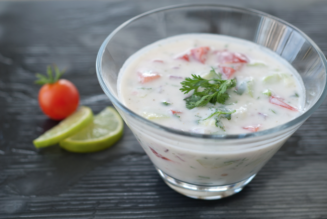
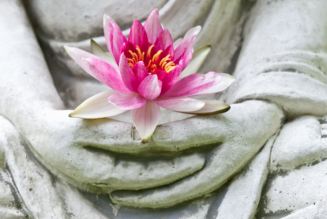
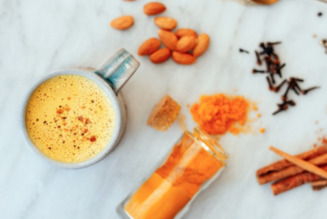
![Female Health: Amenorrhea [cessation of menses] – An Ayurvedic Perspective](https://healthyayurveda.com/wp-content/uploads/2015/07/1.-Amenorhea--327x219.png)

